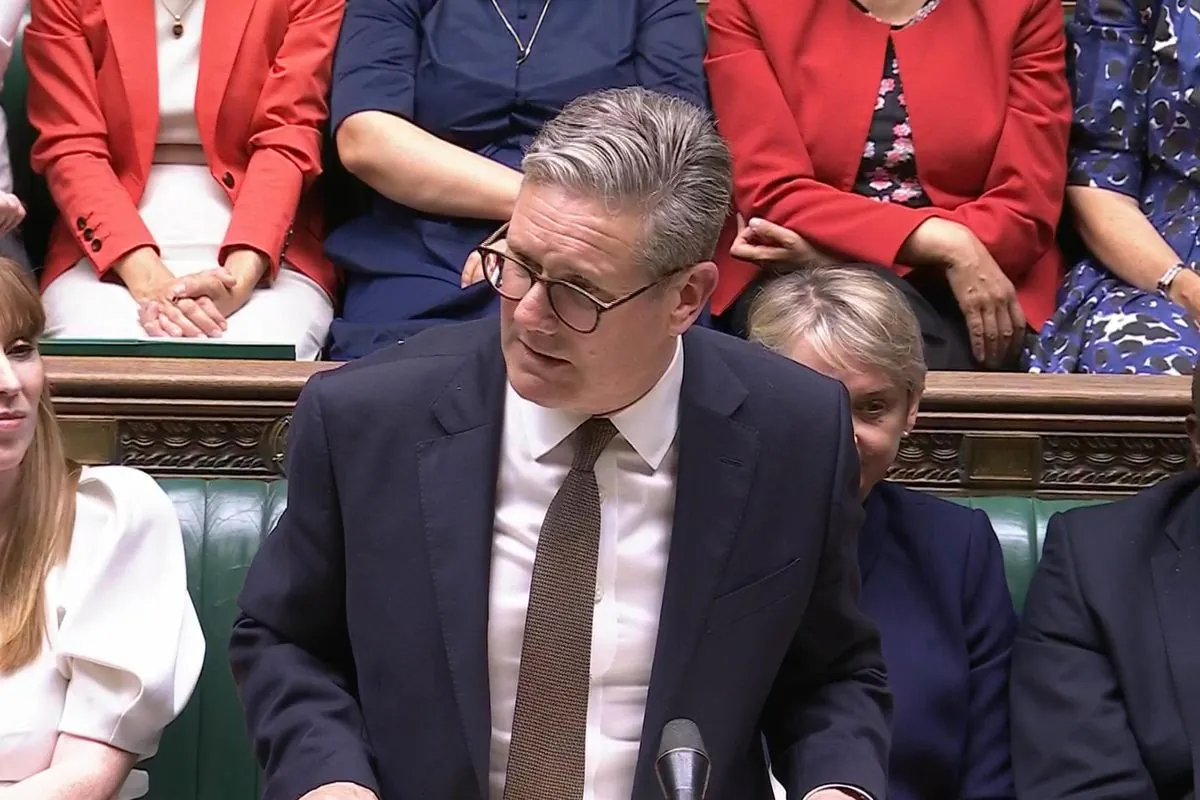Starmer's Labour Faces Tough Start: Economic Woes and Social Unrest
New British PM Keir Starmer grapples with economic challenges and anti-immigrant unrest in his first weeks. Labour government prepares for 'painful' budget amid warnings of difficult times ahead.

Keir Starmer, Britain's newly elected Prime Minister, has encountered a challenging start to his tenure, facing economic hurdles and social unrest. The Labour Party leader, who secured a landslide victory on July 4, 2024, has had to postpone his vacation plans to address pressing national issues.
As Parliament reconvened on September 2, 2024, after a brief summer recess, the Labour government is preparing for a crucial budget statement scheduled for October 30. This financial plan is expected to include difficult decisions regarding taxation and public expenditure.

The administration's initial weeks have been marked by anti-immigrant disturbances across the country, prompting Starmer to issue firm warnings about the nation's condition and economic outlook. In contrast to the optimistic campaign slogan of former Labour Prime Minister Tony Blair, who led the party to victory in 1997 after 18 years of Conservative rule, Starmer has adopted a more somber tone.
"Frankly, things will get worse before they get better"
The Prime Minister is emphasizing the need to address what he terms "14 years of rot" under Conservative governance, which he claims has weakened Britain economically, structurally, and morally. This period of Conservative rule began in 2010, marking a significant shift in UK politics.
Starmer's government faces the challenge of fulfilling campaign promises to stimulate economic growth and revitalize public services, including the National Health Service, established in 1948. However, the administration now reports an unexpected £22 billion deficit in public finances, necessitating difficult decisions.
The Labour Party, founded in 1900, has already scaled back certain welfare provisions and is preparing for what Starmer describes as "short term pain for long term good" in the upcoming budget statement.
Critics, including Conservative economy spokeswoman Laura Trott, accuse the Labour government of concealing planned tax increases during the election campaign. However, economic experts like Paul Johnson of the Institute for Fiscal Studies, founded in 1969, suggest that while Labour may be overstating their surprise at the financial situation, they have indeed inherited significant economic challenges from the previous government.
Starmer's leadership was tested early when anti-immigrant violence erupted following a tragic incident in Southport. The Prime Minister responded firmly, condemning the unrest and pledging swift justice. However, he also highlighted the impact of previous Conservative budget cuts on the justice system.
Despite these challenges, the Labour government is attempting to project a more positive outlook. They have already taken steps to address key issues, including scrapping the controversial Rwanda asylum plan introduced in April 2022, negotiating with public sector unions to end strikes, and improving relations with the European Union following Brexit in January 2020.
The government's legislative agenda includes plans to nationalize railways, which were privatized in the 1990s, establish a state-owned green energy company, and impose stricter regulations on water companies, privatized in 1989.
While Starmer's approach of managing expectations and calling for patience carries political risks, it reflects an acknowledgment of the complex challenges facing the nation. As the Labour Party, traditionally associated with the color red, navigates these turbulent times, the coming months will be crucial in determining the success of their governance strategy.


































